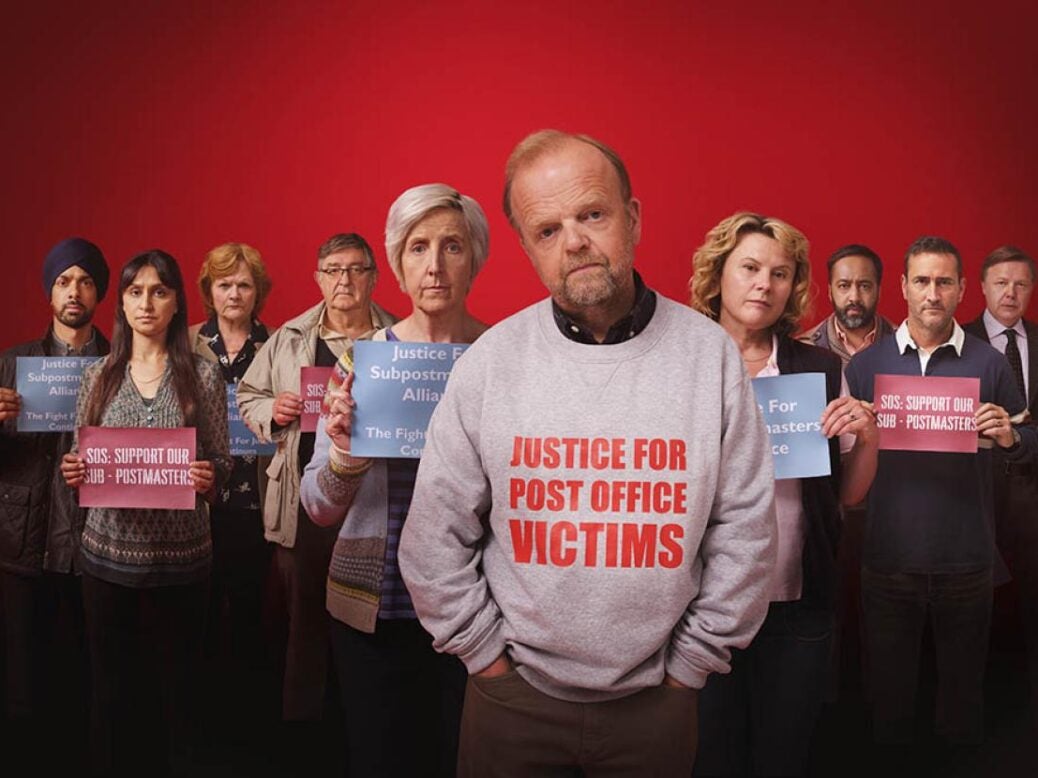
As a press officer, I understand that protecting the good name of the organisation I work for is a key part of my job. But one of the reasons I found ‘Mr Bates versus the Post Office‘ so unsettling was that I recognised a style of corporate communications that places protecting ‘the brand’ over all else.
In one scene, Paula Vennells, the CEO of the Post Office, under questioning by MPs at a select committee replies: “This is about the reputation of the Post Office”. Mr Bates’ partner, watching proceedings from her home in Wales, shouts “no it’s not, it’s about people’s lives you moron”.
The problem with this kind of media relations is that every interaction with journalists is judged on how it helps the organisation. The imperative to help journalists get answers or the public interest in hearing the truth plays second fiddle to avoiding any whiff of negative coverage, real or imagined. Given that engaging with the media is a perilous business, these risk-averse corporate communications people often end up preventing their experts from talking to journalists except in the most controlled conditions.
Top-down blanket bans are not unusual. During the tragic end-of-life care stories like that of Charlie Gard and Alfie Evans, NHS central comms team barred anyone with the relevant clinical expertise from talking to journalists. Senior scientists I know, many of whom have worked at an organisation far longer than the comms officers, are no longer trusted.
One expert told me that in her 30-year career, she went from regularly chatting to journalists to having to ask that questions be submitted in advance, ‘lines’ prepared for her and press officers physically sitting in on interviews.
Infuriatingly for the Science Media Centre, these restrictions seem to get even tighter when science hits the headlines – the very time when the public most needs to hear from the best experts.
Our ability to get comment from the best experts on breaking news, from the Genoa Bridge collapse, to bird flu, to vaccine-related harms has all been hampered by this approach – leading my team to christen these kinds of press officers as ‘anti-comms officers’.
Transparency sacrificed for Post Office narrative
The Post Office drama brilliantly observes some of the tell-tale signs of this approach. The discovery by postmasters that they had all been told the same thing in near identical ways is consistent with a comms that is all about ‘controlling the narrative’ and ensuring messaging is ‘aligned’.
This corporate speech is highlighted in the drama. When the high court judge asks Angela van den Bogerd, head of network services at the Post Office (who variously held job titles like people and change director, head of partnerships and business improvement director) what she means by ‘protecting a brand’ she replies: “One, it is making sure about how we do things, how we behave, and interact with people.. and it’s just making sure that at all times we are maintaining that.”
The faces of the barrister and judge and Alan Bates and team said it all. ‘Protecting the brand’, the phrase used by so many for so long to justify so much was, in fact, meaningless to most people.
One thing I’ve never really understood is whether organisations consciously choose these types of comms experts or whether they just become enamoured by them.
I’ve certainly argued with eminent scientists who have overlooked brilliant science press officers to appoint people from government or industry.
One told me they needed ‘change management’ skills but struggled to define them. The drama captures this beautifully in a scene where one of the plain-speaking postmasters lamented that people like Angela van den Bogerd are ‘very smart’.
Their lawyer shot back ‘they are very corporate’, inviting us to see that the two are not always the same.
Recruit comms people with integrity
I’d love for the huge response to the TV drama to prompt some kind of reset of what we value about PR and communications.
It would require VCs and CEOs to see through the corporate speak and recruit comms people with integrity who understand that the best way to protect the reputation of an organisation is to ensure open and honest communication, admitting to mistakes and considering the public interest as well as the brand.
Journalists have a role here too.
One of the depressing moments of the Covid pandemic for me was when journalists criticised the remarkably open and honest communications from the science team who produced the Oxford-AstraZeneca vaccine, comparing it negatively to the slick ultra-managed comms from Pfizer and other pharma companies.
It seems many people are beguiled by the idea of a crisp and clear message, even at the expense of honesty and transparency. I believe we should all be better than that – journalists in particular should be asking for open communications reflecting the real world in all its messy, complicated nuance.
When we don’t, we damage public trust and understanding – and ironically, we probably damage the brand too.
Email pged@pressgazette.co.uk to point out mistakes, provide story tips or send in a letter for publication on our "Letters Page" blog
